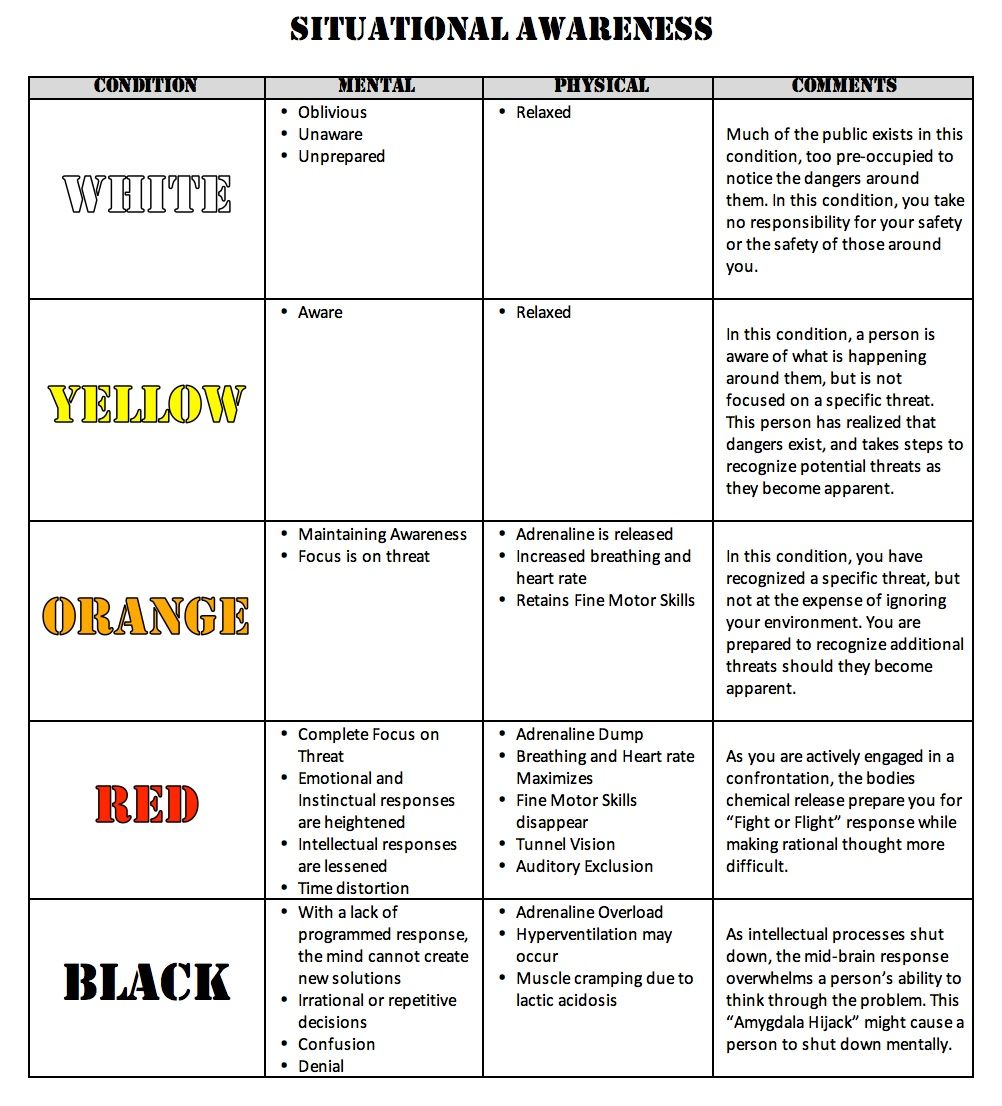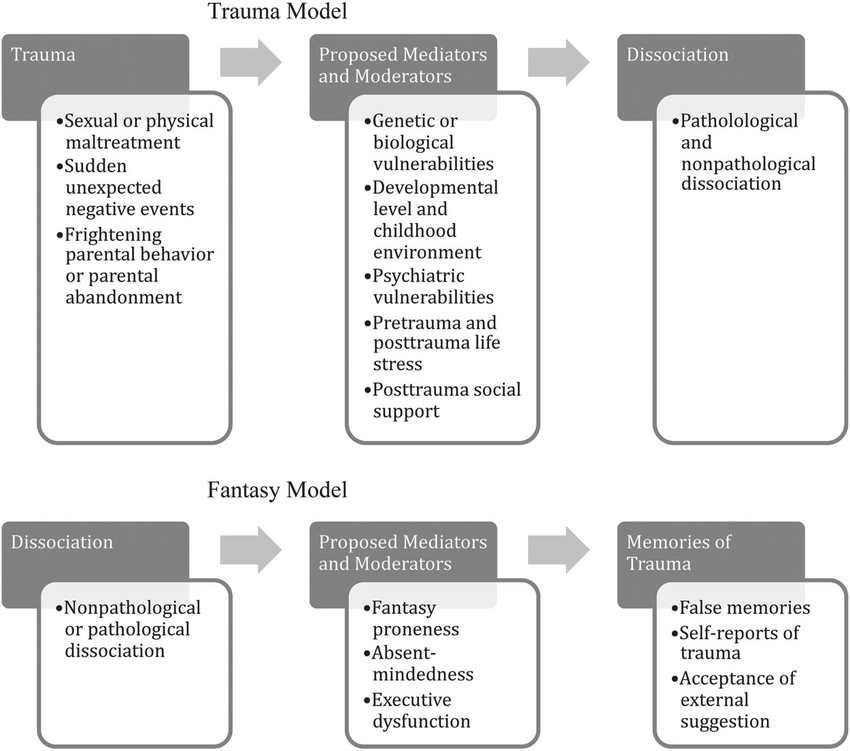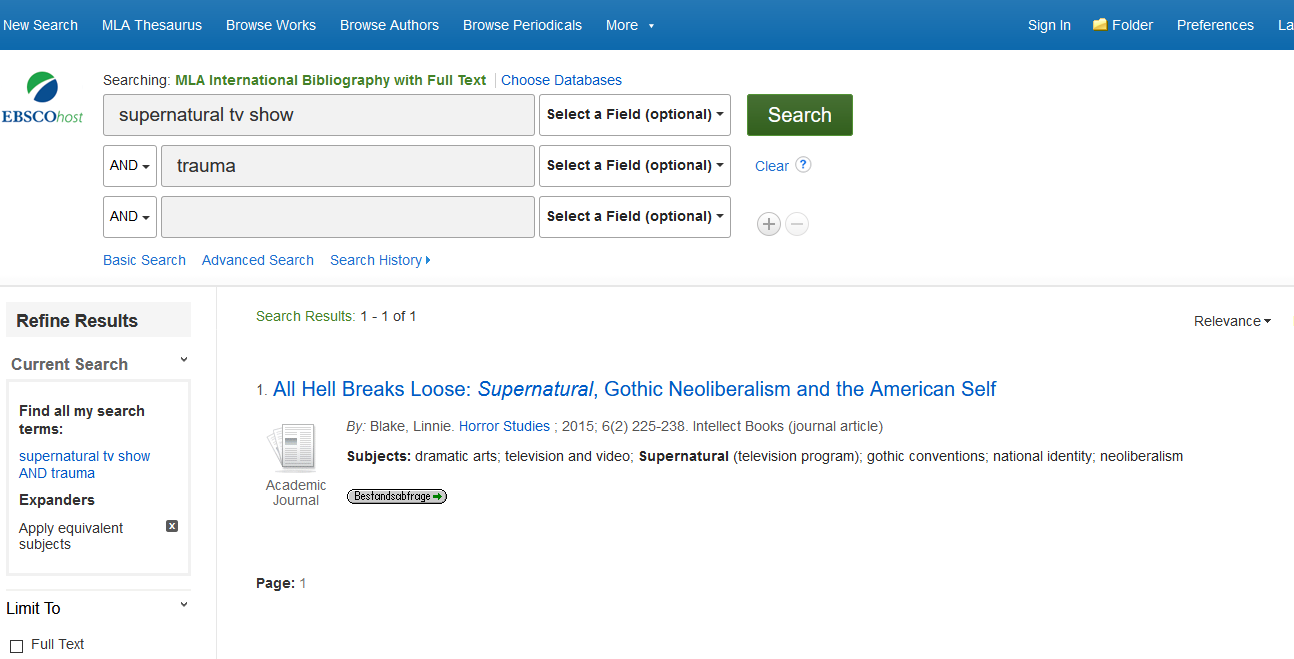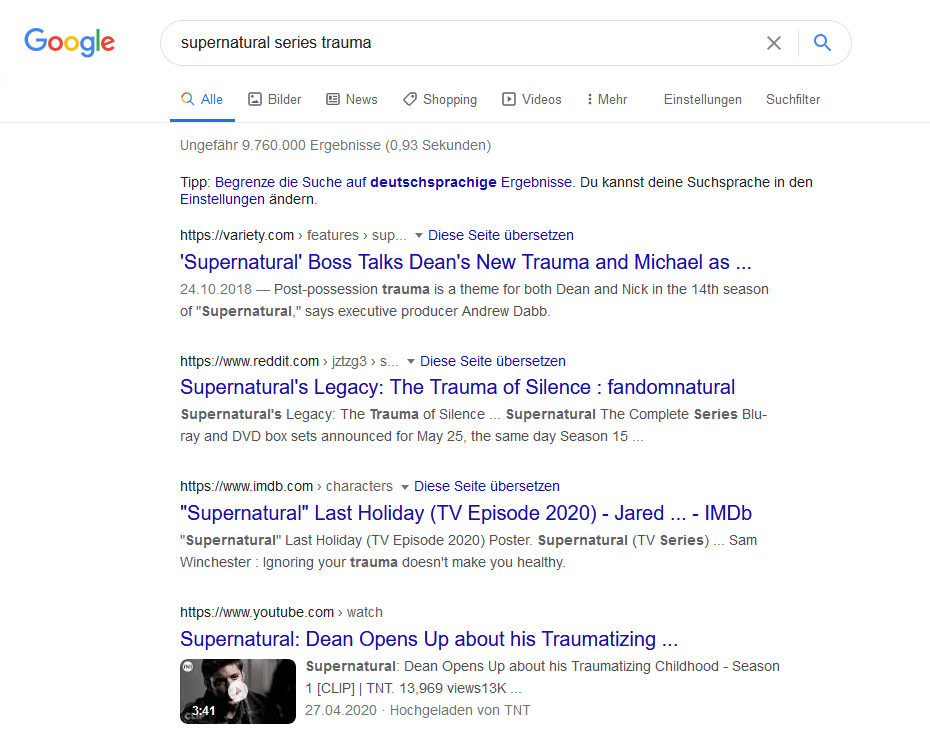Though Supernatural Psychology: Roads less traveled devotes a couple of chapters on trauma and PTSD, they cover but a slim slice of that big pie. The book was published in 2017 and its authors deal with events up to season 12. Now there are 3 more seasons and the Winchesters' lives are over. We see the complete picture. E.g., a discussion of the Cooper Color Code for situational awareness in various stages of the brothers' lives would be interesting: While Dean's condition never went back to yellow (aware but relaxed), let alone white (unaware of threat) after his mother's death, Sam returned to yellow during his time at Stanford, and probably also later in life, when he stopped hunting and started a family after Dean's death. Mostly, their condition is orange (focus is on threat), often red (complete focus on threat), and both experience black (confusion, denial).
I found the following chart on the internet and find it very interesting:
I found the following chart on the internet and find it very interesting:
Sam losing his soul and Dean turning into a demon are two prominent examples of black, or of trauma and resulting PTSD. After Sam gets his tortured soul back, he is by no means healed, but dissociates and goes through a stint of multiple personality disorder at the end of season 6. Dean faces the same problem in season 10. Getting rid of his demon eyes does not bring him peace, but guilt for what he did as a demon. He is haunted by memories and knows his soul will forever have black spots. Both have to fight against external suggestions in their vulnerable states. Death says Sam will not survive if the wall closing off his trauma comes down, and the King of Hell tells Dean life as a demon is more attractive than the alternative.
Here is the trauma and fantasy model of dissociation by Dalenberg et al., which could be used to analyze the Winchesters.
Here is the trauma and fantasy model of dissociation by Dalenberg et al., which could be used to analyze the Winchesters.




 RSS Feed
RSS Feed
